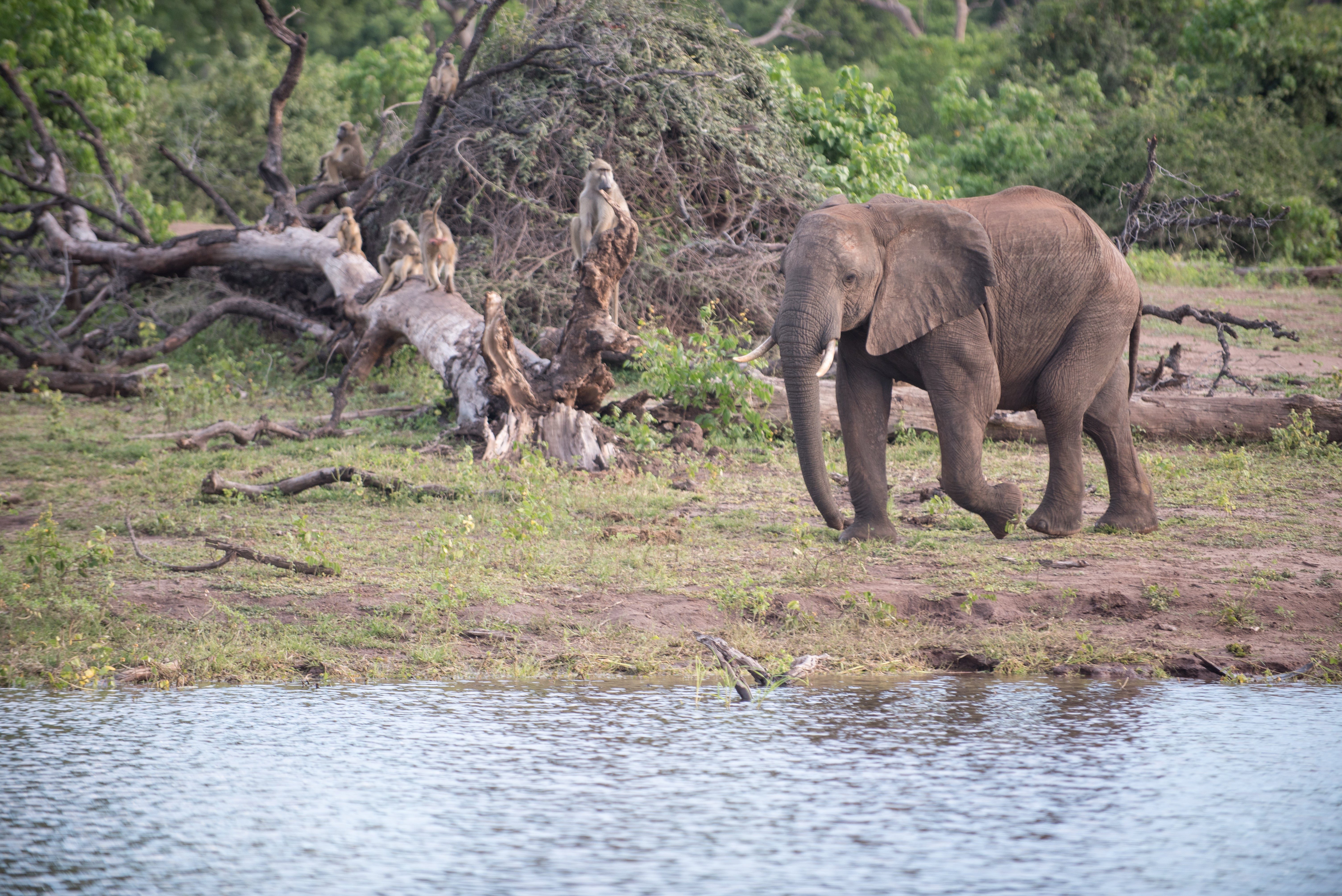Building back from Covid-19 could worsen illegal wildlife trade says new report
Government focus on health, economy and social services will leave protected areas vulnerable to wildlife traffickers

Your support helps us to tell the story
From reproductive rights to climate change to Big Tech, The Independent is on the ground when the story is developing. Whether it's investigating the financials of Elon Musk's pro-Trump PAC or producing our latest documentary, 'The A Word', which shines a light on the American women fighting for reproductive rights, we know how important it is to parse out the facts from the messaging.
At such a critical moment in US history, we need reporters on the ground. Your donation allows us to keep sending journalists to speak to both sides of the story.
The Independent is trusted by Americans across the entire political spectrum. And unlike many other quality news outlets, we choose not to lock Americans out of our reporting and analysis with paywalls. We believe quality journalism should be available to everyone, paid for by those who can afford it.
Your support makes all the difference.By Thobo Motlhoka for The BotswanaTelegraph
Concerns have been raised about the ability of governments to maintain commitments to wildlife conservation in the face of competing health, economic, and social priorities.
In several countries, arguments for rolling back environmental protections are gaining traction, including provisions that would newly authorize or expand extractive industries and infrastructure in protected and conserved areas, justified in part by initiatives to re-energize economies for a post-COVID-19 world, UK Government research on the impact of COVID-19 on the illegal wildlife trade has found.
With reduced resources, the Report says, conservation areas will continue to suffer reduced capacities to undertake all of their functions, including detecting and preventing poaching and responding to fires and incidences of human-wildlife conflict.
“The latter could lead to increased hardship to communities and in turn, reduced tolerance for wildlife and conservation work.”
The report quotes United for Wildlife which projected that across Africa, poaching of elephants, rhinos, big cats, and other species will significantly increase in reserves and protected areas which have been forced to reduce ranger force staffing levels, patrolling and intelligence operations, training, and/or equipment provision due to loss of tourism revenue or donor funds.
Botswana is one of the African countries projected by United for Wildlife to experience challenges post Covid-19. Other countries include South Africa, Kenya, Namibia, and
Tanzania, where the organization says protected areas lack mutually positive relationships with the local communities that surround them.
Founded by Prince William and The Royal Foundation in 2014, United for Wildlife aims to make it impossible for traffickers to transport, finance or profit from illegal wildlife products. The organization aims to disrupt criminal networks globally by working collaboratively with transport and finance sectors, building key partnerships with law enforcement and NGOs, and sharing information and best practices across the sectors, and across borders.
Released in early 2022, the UK Government report also says wildlife traffickers are highly adaptable and are likely to change their activities to seek out new illicit business opportunities as the environment changes.
“United for Wildlife anticipates that illegal wildlife traders will easily adapt to the new macro market conditions and return to full profitability within 2-3 years, in line with the aftermath of the 2002-03 SARS outbreak. They also anticipate that illegal wildlife wholesalers may find opportunities arising out of the pandemic to expand their operations and market share.”
Restrictions on the sale and consumption of wildlife products that have recently come into force especially in China and Vietnam, the UK research says, may create new illicit business opportunities such as selling and renting legally obtained wildlife trading permits, licenses, and certificates to illegal traders.
A case in point may be Botswana, which recently released quotas for the hunting of elephants, leopards, and buffalos among other wildlife. In late 2021 the Department of Wildlife and National Parks (Botswana) announced the wildlife hunting quotas for the year 2022.
The UK report also says traffickers may begin to use legal wildlife supply and distribution chains, such as supply chains for traditional Chinese medicine products, as a cover for illicit activity, possibly shifting activities towards greater emphasis on species more easily covered by the legal trade such as frogs, birds, turtles, and snakes.
“Continued restrictions on physical wildlife markets are likely to continue the shift to online trading that has already been seen at both the wholesale and retail levels.” The research says this may make wildlife traffickers more vulnerable to electronic surveillance and offensive cyber operations.
The global tourism industry is expected to experience a slow recovery from the effects of the pandemic. Recovery from past global disease crises is reported to have taken an average of 19.4 months (Global Rescue and World Travel & Tourism Council, 2019).
But the Covid-19 pandemic has been significantly more serious than most disease outbreaks.
“In a survey of international tourism experts in October 2020, most expected that international tourism would return to pre-pandemic levels only in 2024 or later,” the UK Government’s report says.
This article is reproduced here as part of the African Conservation Journalism Programme, funded in Angola, Botswana, Mozambique, and Zimbabwe by USAID’s VukaNow: Activity. Implemented by the international conservation organization Space for Giants, it aims to expand the reach of conservation and environmental journalism in Africa, and bring more African voices into the international conservation debate. Read the original story here.
Join our commenting forum
Join thought-provoking conversations, follow other Independent readers and see their replies
Comments